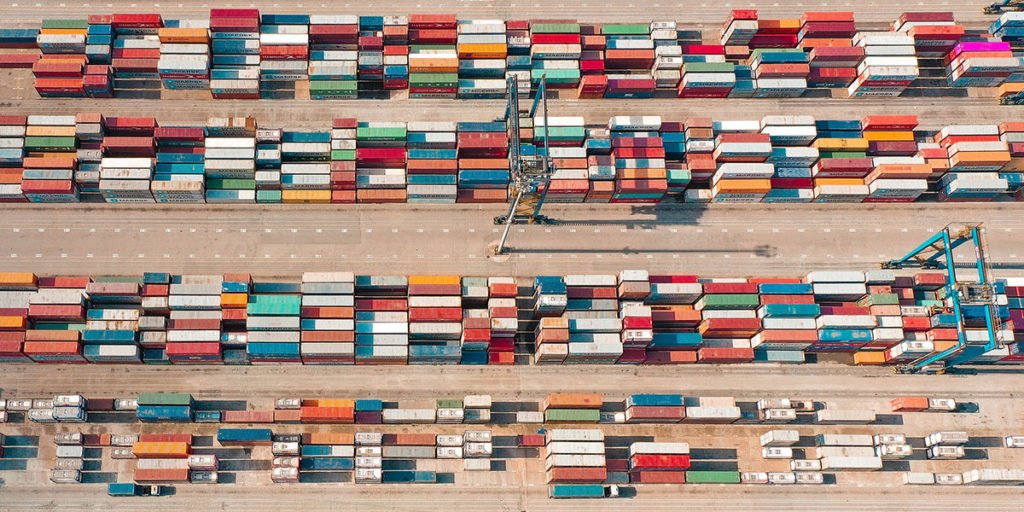The novel coronavirus sweeping the globe has exposed how vulnerable international supply chains are to disruption. The World Economic Forum has a pitch for how to make them more resilient: blockchains.
Covid-19 chaos: Quarantines, lockdowns, and reduced air travel have disrupted normal business operations all over the world and made it difficult for buyers to keep track of what’s happening with their suppliers. Even during normal times, such a lack of visibility can hurt a supply chain’s efficiency, say Rebecca Liao, cofounder of SKUchain, which develops blockchain-based supply chain software, and Ziyang Fan, the WEF’s head of digital trade, writing on the organization’s website. But during a crisis, visibility is crucial because buyers must know as soon as possible if they need to find alternative suppliers.
Pushing paper: Trade is “notoriously reliant on paper processes,” write Liao and Fan, including detailed ship cargo lists, notices filled out by hand, and paper copies of packing lists produced by every logistics carrier in the chain. The pandemic shows exactly why this is problematic, the authors argue.
Show me the money: For years, blockchains have been hawked as a way to make supply chains more efficient and resilient by helping firms share sensitive information digitally. But the problems have never seemed to be bad enough to convince many firms to switch away from their tried and true paper processes.
Unsurprisingly, suppliers prefer not to reveal information about their operations, pricing, and sourcing to their customers. That’s one reason they have been hesitant to move away from paper. Any digital communication usually occurs between only two links in the supply chain at a time, Liao and Fan write.
Blockchain smart contracts could potentially let firms have precise control over who has permission to see their data and under what conditions. That would solve a “key technology problem in getting suppliers to participate in supply chain visibility initiatives,” the authors write. Buyers might even consider paying their suppliers for valuable data about their day-to-day operations, in addition to the physical goods. This already occurs between some end customers and their “Tier 1” suppliers. A blockchain would help expand this system, Liao and Fan say.
